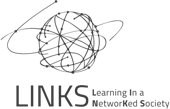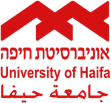 My research interests focus on two important aspects of human life: statistical reasoning and technology-enhanced learning. The first refers to the kind of thinking involved in creating and evaluating data-based claims that are used ubiquitously as means of forming credible arguments and of making decisions under uncertainty. All citizens need nowadays to be able to engage in this kind of thinking processes and have basic statistical literacy and numeracy skills. It should therefore be a standard ingredient of every learner's education. The second aspect, technology, is rapidly transforming the way people communicate and collaborate, consume information and create knowledge, learn and teach. Educational technologies can mediate and facilitate thinking about complex domains – such as statistics, mathematics or science, making them more accessible to all learners.
My research interests focus on two important aspects of human life: statistical reasoning and technology-enhanced learning. The first refers to the kind of thinking involved in creating and evaluating data-based claims that are used ubiquitously as means of forming credible arguments and of making decisions under uncertainty. All citizens need nowadays to be able to engage in this kind of thinking processes and have basic statistical literacy and numeracy skills. It should therefore be a standard ingredient of every learner's education. The second aspect, technology, is rapidly transforming the way people communicate and collaborate, consume information and create knowledge, learn and teach. Educational technologies can mediate and facilitate thinking about complex domains – such as statistics, mathematics or science, making them more accessible to all learners.
These two themes are simultaneously present and closely intertwined in my work: I study (a) students' statistical learning and the development of their statistical reasoning as it occurs in the social context of the classroom; and (b) the roles of innovative tools in offering new forms of understanding, learning and communication in technology-enhanced learning communities. I pursue these themes in classroom studies that foster inquiry, reasoning, argumentation, collaboration, and learners’ use of notations and technological tools. I use design experiment methodology, geared toward the double aim of promoting theory and improving practice. More specifically, while “engineering” particular forms of learning, I develop domain-specific theories by systematically studying those forms of learning and the means of supporting them.



